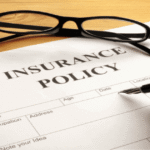Introduction
Choosing the right public liability insurance provider is a critical decision for any business owner. In a world where uncertainties are part and parcel of daily operations, having comprehensive coverage is not just a safety net; it’s a strategic move. In this guide, we’ll delve into the key considerations that can help you make an informed decision – one that safeguards your interests without breaking the bank.
Coverage that Fits Like a Glove
The foundation of any insurance policy lies in its coverage. When evaluating public liability insurance providers, it’s essential to scrutinize the breadth and depth of the coverage they offer. A one-size-fits-all approach seldom works in the dynamic landscape of business risks. Instead, look for providers that tailor their policies to your specific industry and business size.
Consider the nature of your business and the potential risks it faces. Does the provider’s coverage extend to accidents on your premises, or does it also cover incidents related to your products or services? Be thorough in understanding the exclusions, limitations, and any additional endorsements that might be necessary to bridge potential gaps in your coverage.
Claims Process Transparency
The true litmus test of any insurance provider is how seamlessly and transparently they handle claims. A provider might offer extensive coverage, but if their claims process is convoluted or riddled with red tape, the real value of the policy diminishes.
Research the provider’s claims settlement history and customer reviews. A provider with a reputation for prompt and fair claims processing is more likely to be a reliable partner in times of crisis. Transparency is key – you should be able to easily understand the claims procedure, including documentation requirements and expected timelines.
Additionally, consider the provider’s track record in resolving disputes and handling claims fairly. Some insurers may have a reputation for denying claims without proper justification, so it’s crucial to choose a provider with a fair and customer-oriented claims approach.
Premiums: Balancing Act between Cost and Value
While it’s tempting to focus solely on the bottom line, viewing insurance as a mere expense can lead to poor decision-making. The goal is not just to find the cheapest premium but to strike a balance between cost and the value of the coverage provided.
Start by obtaining quotes from multiple providers to compare premiums. However, don’t make the mistake of solely considering the cost without evaluating the coverage in detail. A slightly higher premium may be justified if it includes additional benefits or broader coverage.
Consider factors such as deductible amounts, co-pays, and any discounts or loyalty programs offered by the provider. Some insurers provide risk management services or resources that can help reduce the likelihood of claims, potentially saving you money in the long run.
Risk Management Support
A proactive insurance provider goes beyond policy issuance and claims settlement. They offer valuable risk management support to help mitigate potential hazards and reduce the likelihood of claims. Look for providers that conduct risk assessments, provide safety training, and offer resources to enhance your business’s overall risk management strategy.
An insurer invested in your success will actively work with you to identify potential risks in your operations and help implement measures to minimize those risks. This collaborative approach not only protects your business but also demonstrates the provider’s commitment to a long-term partnership.
Financial Stability and Reputation
The financial stability of your insurance provider is a critical factor that often goes overlooked. A financially sound insurer is better equipped to fulfill its obligations and settle claims, providing you with the security you need in times of crisis.
Research the provider’s financial ratings from reputable agencies and assess their long-term stability in the market. A company with a strong financial standing is more likely to weather economic downturns and continue to provide reliable coverage over the long term.
Furthermore, consider the provider’s reputation within the industry. Customer reviews, testimonials, and feedback from other businesses in your sector can offer valuable insights into the provider’s reliability and customer service.
Conclusion
Choosing a public liability insurance provider is not a decision to be taken lightly. By carefully evaluating coverage options, claims processes, premiums, risk management support, and the financial stability of potential providers, you can make an informed choice that aligns with your business needs. Remember, the right insurance partner isn’t just an expense – it’s an investment in the resilience and longevity of your business.





